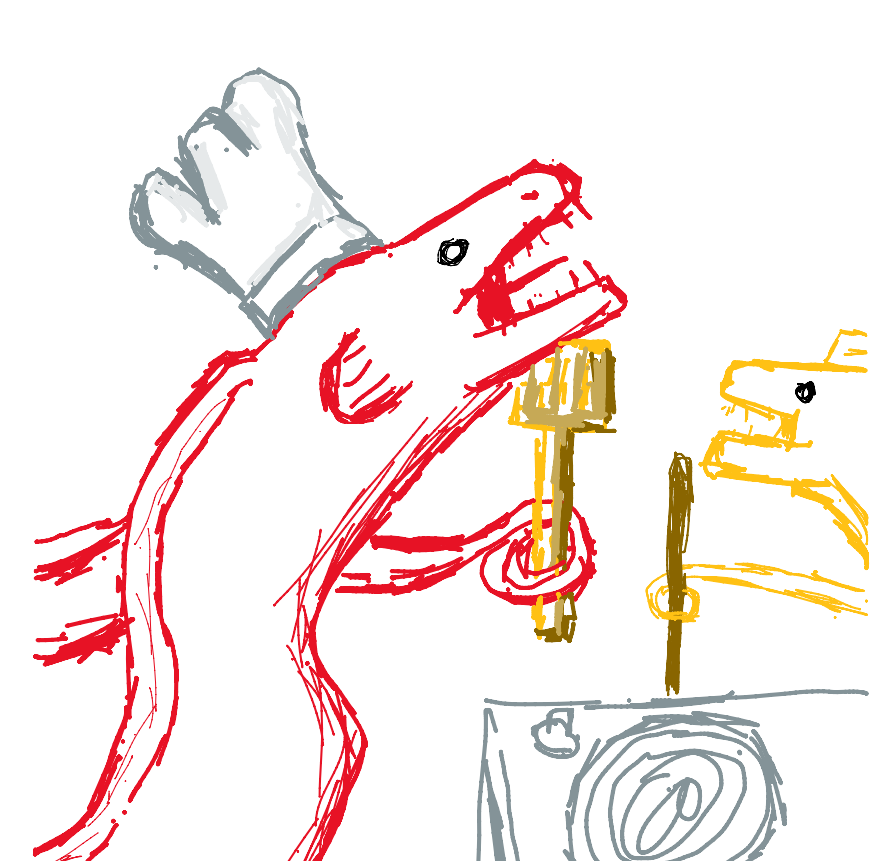mEEL Time!

mEEL Time is a collection of fast-paced restaurant based minigames that users must accomplish based on a prompt instructing them to do various tasks. Users will be given scores based on how fast they can accomplish each task and will lose points if they fail a task. In mEEL Time you play as Neelson who has just started a new job at the fanciest restaurant in town. The only problem is, Neelson doesn’t have hands! Help Neelson take orders, cook food and clean up the kitchen during rush hour and keep his job!
mEEL Time is being developed in Unreal Engine 4 for Windows 10. mEEL Time is scheduled to release a finished prototype in the winter of 2018.
Demo
Prototype Fall 2018
This is the prototype build for the Game Desigin class at University of Colorado Denver fall 2018, It contains two more minigames than the last build as well as models for its assets.
Minigame Descriptions
Each minigame is five seconds long with a three second break before each game. During the break the user will receive a prompt of what they are supposed to do in each minigame. All of the minigames are played with a mouse as input and take advantage of the mouse’s x axis as well as left click.
Game 1:
The first minigame is a balance game. The goal is for the user to keep as many of the items on their tray while the tray becomes increasingly harder to keep balanced. The player moves there mouse to the left or the right to try an offset set the tipping plater. With each second that passes the rate at which the plater tries to flip itself gets greater by a factor of a third. Players will be scored based on how many items have not fall after five seconds.
Game 2:
The second minigame is a matching game. For the first second of the game the user has a few items shown to them before they disappear. The user then has to find the items on a shelf in the remaining time and select them with the left mouse button. The user will be scored positively for each correct item they select and negatively for each item that was not shown to the at the beginning.
Game 3:
The third minigame is a catching game. The user takes control of a plate that they must use to catch items falling down toward the plate. The user controls the plate by moving the mouse side to side. The user will be scored positively for each item they can catch on the plate during the five second game time.
Level of Completion
The game has reached its desired level of completion for this semester. It has one less game than originally intended which was left out due to time constraints. The next steps for this project would be to add a level of variation in each minigame so that each game plays differently each time you play it. Another future goal would be to port mEEL Time! to mobile platforms were the player could use other kinds of input to add to the level of immersion in mEEL Time!.
Challenges
There were several challenge to making ‘mEEL Time!’ that put production a little behind schedule. The largest of those challenges is how the user will have different camera views throughout the game. Between each minigame the camera must be changed to show the next game. By default Unreal Engine 4 prefers to snap the camera to any possessed pawns that the player controls which can change the player’s view from the camera that is setup for each minigame.
The other major challenge was allowing the player to have multiple control types for each minigame. Since each minigame plays differently than the rest the players input has to managed throughout the game to ensure they are controlling the right minigame at the right time.